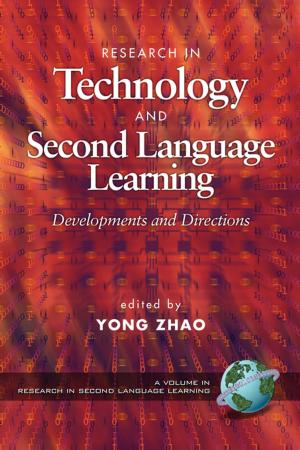Contemporary Science Teaching Approaches
Promoting Conceptual Understanding in Science
Nonfiction, Science & Nature, Science, Other Sciences, Study & Teaching, Reference & Language, Education & Teaching, Teaching, Teaching Methods| Author: | ISBN: | 9781617356100 | |
| Publisher: | Information Age Publishing | Publication: | May 1, 2012 |
| Imprint: | Information Age Publishing | Language: | English |
| Author: | |
| ISBN: | 9781617356100 |
| Publisher: | Information Age Publishing |
| Publication: | May 1, 2012 |
| Imprint: | Information Age Publishing |
| Language: | English |
Contemporary science teaching approaches focus on fostering students to construct new scientific knowledge as a process of inquiry rather than having them act as passive learners memorizing stated scientific facts. Although this perspective of teaching science is clearly emphasized in the National Research Council’s National Science Education Standards (NRC, 1996), it is however challenging to achieve in the classroom. Science teaching approaches should enhance students’ conceptual understanding of scientific concepts which can be later utilized by students in deeper recognition of real world (Marsak & Janouskova, 2007). This book identifies and describes several different contemporary science teaching approaches and presents recent applications of these approaches in promoting interest among students. It promotes conceptual understanding of science concepts among them as well. This book identifies pertinent issues related to strategies of teaching science and describes best practice The chapters in this book are culmination of years of extensive research and development efforts to understand more about how to teach science by the distinguished scholars and practicing teachers.
Contemporary science teaching approaches focus on fostering students to construct new scientific knowledge as a process of inquiry rather than having them act as passive learners memorizing stated scientific facts. Although this perspective of teaching science is clearly emphasized in the National Research Council’s National Science Education Standards (NRC, 1996), it is however challenging to achieve in the classroom. Science teaching approaches should enhance students’ conceptual understanding of scientific concepts which can be later utilized by students in deeper recognition of real world (Marsak & Janouskova, 2007). This book identifies and describes several different contemporary science teaching approaches and presents recent applications of these approaches in promoting interest among students. It promotes conceptual understanding of science concepts among them as well. This book identifies pertinent issues related to strategies of teaching science and describes best practice The chapters in this book are culmination of years of extensive research and development efforts to understand more about how to teach science by the distinguished scholars and practicing teachers.















